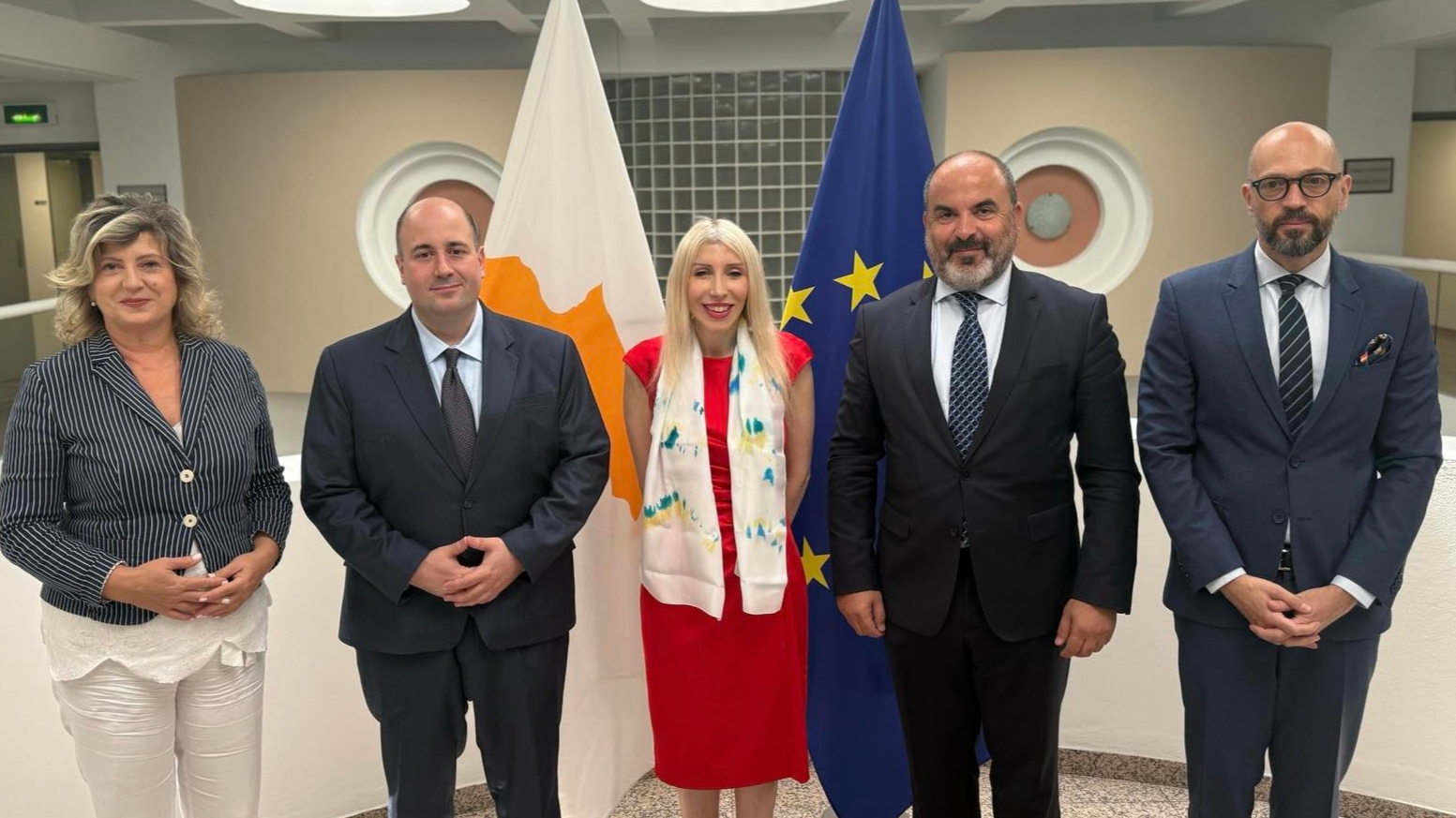Kozarev confers with the Political Director of the Ministry of Foreign Affairs of Cyprus: Cyprus’ full support to Serbia during its EU presidency
In a cordial atmosphere, the exceptional closeness and mutual understanding between the two countries, peoples, and leaderships was reaffirmed, reflected in the prominent level of alignment on issues of common interest.
Both sides reiterated their firm mutual support for sovereignty and territorial integrity, underscoring that consistent adherence to international law will provide a clear framework for efforts to advance the Belgrade–Pristina dialogue and Serbia’s EU integration process with greater success during Cyprus’ Presidency of the EU in the first half of next year.
Expressing gratitude for Cyprus’ longstanding and repeatedly demonstrated support, Kozarev gave a detailed account of the extremely demanding situation faced by the Serbian and non-Albanian population in Kosovo and Metohija, subjected to a de facto apartheid imposed by Albin Kurti through the daily blatant violation of fundamental human rights.
He further informed his interlocutor about ten months of intensified attempts to destabilize the region through efforts to instigate a “color revolution” in Serbia, accompanied by severe pressures on Serbs in Kosovo and Metohija and in Bosnia and Herzegovina.
He underlined that, despite these challenges, official Belgrade remains committed to peace, development, and comprehensive cooperation in the Western Balkans, as well as to continuing its path towards full EU membership, while at the same time doing everything necessary to protect its compatriots from pogrom and persecution.
Shambos emphasized Cyprus’ sincere intention, particularly during its EU Presidency, to extend maximum support to Serbia in all fields, including accelerating EU accession negotiations and addressing the situation in Kosovo and Metohija, while also continuing to foster intensive bilateral cooperation.
The two officials jointly reviewed the dynamic and complex geopolitical situation and its implications for the wider Euro-Mediterranean area, and noted the need to maintain close coordination in order to respond in a timely manner to the many possible challenges ahead.

